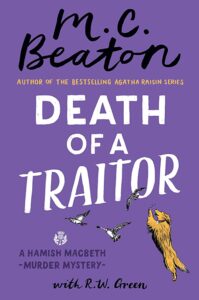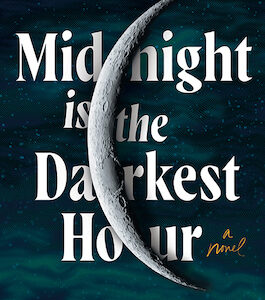Nothing is ever as it seems. That’s the way it goes in murder mystery stories, isn’t it? Nowhere is quite what you believe it is. No one is exactly who they say they are. Nothing happens entirely as you think it will. At least, that’s what any author would hope to achieve – keep you guessing right up to the end when the skill and bravery of the detectives allows them to reveal all before apprehending the culprit.
I’ll never forget the ‘reveal all’ scene in the 1968 movie Where Eagles Dare, which starred Richard Burton and Clint Eastwood. It may be an action-adventure, war-and-espionage movie but there are a couple of murders along the way, so I feel justified in giving it a mention. When Burton makes his ‘reveal all’ speech with all of the suspects gathered in the great hall of a German castle, it’s every bit as mesmerising as listening to Hercule Poirot or Jane Marple summing up a case. He weaves such a fabulous tapestry of lies and half-truths to expose the bad guys that Eastwood is able to deploy his very best, utterly bewildered, ‘What the hell’s going on here?’ expression. The movie’s worth watching just for that scene, just to see poor Clint looking every bit as flummoxed as all of us in the audience. Burton’s speech is masterful flimflammery. Nothing is what it seems.
That’s all very well in fiction, but things shouldn’t be like that in real life, should they? Things shouldn’t be like that when you sit down for a chat with a friend you’ve known for 20 years. The problem was, I was sitting down to chat with M. C. Beaton – Marion – so I should have known to expect the unexpected.
I first met Marion at a publishing function where she was the star guest. My wife, Krystyna, was Marion’s publisher and introduced us, thinking we were bound to get along because we were both Scottish, both former journalists and both writers. She was right, of course, and thereafter I always looked forward to meeting Marion at similar events. To be honest, I was somewhat in awe of her. She had written so many books and was enormously well-respected not only by her own massive fan base, but also among the crime-fiction writing community – so I was flattered that she enjoyed talking nonsense with the likes of me. Years later, when she became ill, I was even more flattered when she agreed, at Krystyna’s suggestion, for me to lend her a hand with her latest book.
Marion’s illness meant that she wasn’t up to sitting at a desk for hours on end hammering away at a keyboard and when I went to see her for the first of our ‘work’ meetings, I imagined that she might be reclined on a chaise longue, sipping tea and dictating to me while I took down every golden nugget of prose, either scribbling frantically on a notepad or manically typing ’til my fingers bled (to paraphrase Bryan Adams). That’s how Barbara Cartland famously churned out her books, but it wasn’t what Marion had in mind. To tell you the truth, I’m not entirely sure if Marion had anything at all in mind for that meeting. She wasn’t used to working with anyone else and I suspect that, when we started chatting, neither of us really knew exactly how we would make it work. So, we talked about Scotland, travel, living in England and people we had met along the way which, after a few laughs, led us into the characters who regularly appeared in her Hamish Macbeth and Agatha Raisin books.
You can probably see how that happened, can’t you? Talking about friends and acquaintances flowed fairly seamlessly into talking about Marion’s characters. She knew them all just as well as she knew her friends, probably better. She knew what each of them would say, what they would think and how they would react in any situation she inflicted upon them. She knew their backgrounds, their habits and their weaknesses. She knew everything about them, even things that had never been mentioned in the books. They were, after all, her creations so they couldn’t keep any secrets from her! Yet all of their secrets, all of their dreams and all of their ambitions existed only in Marion’s head. To the best of my knowledge, she didn’t keep any character notes. She stored everything away in her memory banks.
Having done my homework, you can bet your house I had made notes. I knew I would need to know as much about the characters as I could absorb if I was to be any use to Marion and I was able to discuss how the characters interacted with each other. I could talk a bit about a few favourites such as the Currie twins in the Hamish Macbeth books. These are minor characters with whom we can have fun, bringing moments of light relief to the narrative, yet their cameo roles can still be integral to the plot.
Following our chat about characters and potential plotlines, Marion simply said to me, ‘Right – why don’t you go off now and write a chapter?’
At that point I was clearly giving her my version of Clint Eastwood’s baffled and bemused look. Marion, on the other hand, had now decided how she wanted to handle this new working relationship.
‘Write a chapter,’ she said, ‘and if I like it, we can take it from there.’
She didn’t want me to be a secretary or typist. She’d decided I should be a kind of apprentice. That was unexpected.
‘Good idea,’ I said, playing it cool. ‘That’s a good way forward.’
She gave me a big grin to let me know that she could see I was taking it far too seriously. She could always see right through me. She’d have murdered me at poker. On the drive home, the words that I kept hearing in my head were ‘if I like it’. Firstly, that meant I had to make the chapter good – really good – and, secondly, it left me in no doubt that Marion was in charge. I was actually very glad about that, and very happy there was to be no chaise longue.
A couple of weeks later, we were back in the same room sitting in the same chairs. The only difference was that Marion was sitting with a clutch of typed sheets on her lap – the chapter. I had hoped that she would let me scurry off to wring my hands and fret somewhere else while she read it, but she sat me down with a cup of tea and a chocolate digestive biscuit. Then she started on the text, her reading glasses perched halfway down her nose and a red pen poised above the paper.
Any of you who have read the forewords I wrote to subsequent books will know what happened next. Mind you, don’t most of us just skip the foreword and dive straight into the story? Marion read through the whole chapter very carefully, looking up over her glasses from time to time with a grave expression. I was inwardly squirming. It was like having your homework marked by the teacher as you sat at her desk and then suddenly realising that you forgot to put your clothes on that morning. Yes, I have had those dreams. Outwardly, I was pretty sure I was doing a better job of playing it cool than I had a couple of weeks before. Then she tutted. That tut was like an arrow through my heart. She looked up.
‘Not “smirk”,’ she said scoring out the word. ‘I hate that word.’
She went back to reading, eventually turning over the last sheet and taking off her glasses to stare at me in a very sombre manner.
‘Apart from “smirk”,’ she said, ‘that’s pretty much how I would have done it.’
Then she watched me breathe a sigh of relief and burst out laughing. She’d been winding me up. She’d known from the first couple of pages that it was working just fine! I got a sudden touch of the munchies, at the biscuit in two bites and washed it down with cold tea.
We went on to talk about how the story would develop and some of the ‘scenes’ that Marion had in her head. She described how she saw major events throughout the book as scenes, some of which would be directly related to the plot and some of which would be there just for fun. Our meetings became regular and she encouraged me to discuss scenes and possible plot developments with her. Sometimes she would say, ‘That’s good, but not for this book,’ meaning that she was committing it to her memory bank for us to use at a future date. I, of course, wrote these things down. To this day, I’ve no idea how she managed to keep all that stuff in her head. My brain would have burst by now.
I can’t begin to tell you how proud I am that Marion allowed me to meddle with her characters and join in the fun of cruelly dropping them into ‘scenes’ purely for our amusement. I wish I’d had more time to work with her but, by the time of her death at the end of 2019, she had taught me a huge amount about Hamish Macbeth and her other sleuth, Agatha Raisin. I’ll always feel her influence on the stories. She loved Hamish Macbeth and the Scottish setting, as do I, but she also put a great deal of herself into Agatha Raisin, to the extent that I often type ‘Marion’ when I meant to type ‘Agatha.’
And, even though she’s no longer with us, Marion is still involved. If ever I’m wondering what a character should say or how they should behave, all I need do is ask myself, ‘How would Marion do it?’ Then I expect the unexpected.
***


















